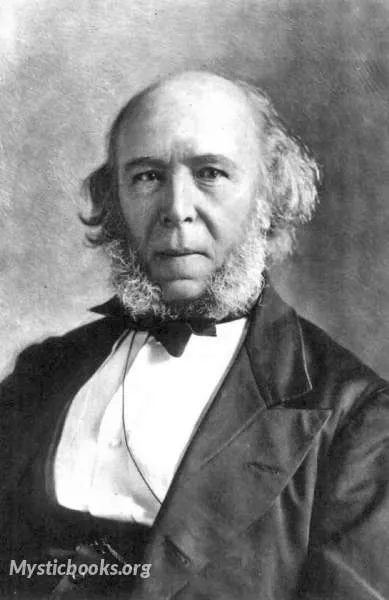
Timeline
Title
Country/Nationality
Herbert Spencer
Spencer developed an all-embracing conception of evolution as the progressive development of the physical world, biological organisms, the human mind, and human culture and societies. As a polymath, he contributed to a wide range of subjects, including ethics, religion, anthropology, economics, political theory, philosophy, literature, astronomy, biology, sociology, and psychology. During his lifetime he achieved tremendous authority, mainly in English-speaking academia. "The only other English philosopher to have achieved anything like such widespread popularity was Bertrand Russell, and that was in the 20th century. “Spencer was "the single most famous European intellectual in the closing decades of the nineteenth century “but his influence declined sharply after 1900: "Who now reads Spencer?" asked Talcott Parsons in 1937.
Herbert Spencer (27 April 1820 – 8 December 1903) was an English philosopher, biologist, anthropologist, and sociologist famous for his hypothesis of social Darwinism whereby superior physical force shapes history.Spencer originated the expression "survival of the fittest", which he coined in Principles of Biology (1864) after reading Charles Darwin's On the Origin of Species. The term strongly suggests natural selection, yet Spencer saw evolution as extending into realms of sociology and ethics, so he also supported Lamarckism.
In 1902, shortly before his death, Spencer was nominated for the Nobel Prize for literature, that was assigned to the German Theodor Mommsen. He continued writing all his life, in later years often by dictation, until he succumbed to poor health at the age of 83. His ashes are interred in the eastern side of London's Highgate Cemetery facing Karl Marx's grave. At Spencer's funeral the Indian nationalist leader Shyamji Krishna Varma announced a donation of £1,000 to establish a lectureship at Oxford University in tribute to Spencer and his work.
Books by Herbert Spencer

The Philosophy of Style
“The Philosophy of Style,” explored a growing trend of formalist approaches to writing. Highly focused on the proper placement and ordering of the parts of an English sentence, [Spencer] created a guide for effective composition. Spencer’s aim was to...

Social Statics
In the book, he uses the term "fitness" in applying his ideas of Lamarckian evolution to society, saying for example that "It is clear that any being whose constitution is to be moulded into fitness for new conditions of existence must be placed unde...